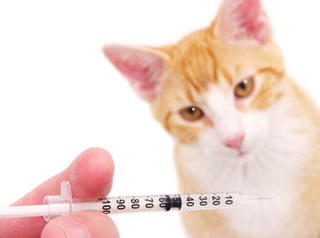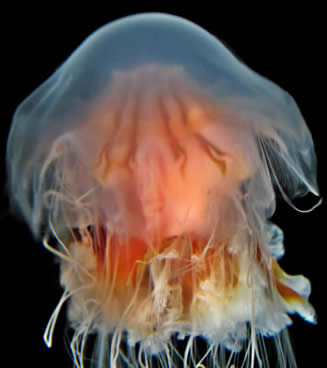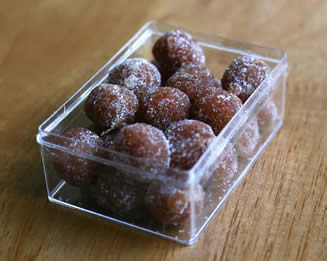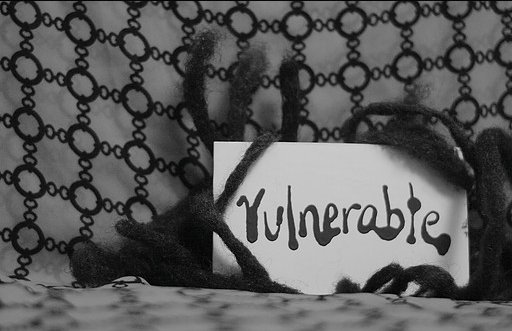|
What was your last bite?
Two truths and a lie:
(a) My last bite was a grilled corncob, rubbed and marinated to lip-tingling awesome-sauce.
(b) Sharkweek highlights included cheekfuls of tender metaphorical butt-flesh harvested from the delicate hind-quarters of those who need me to "know my place"--and the unbelievable vacation that vindication brings.
(c) Nipple.
What do black women artists/poets need to thrive?
We need the equalizing power of the sunshine to brown us into a hum. We need that as much as we need clean water and clean air and the food and the shelter and the ability to live moreso than die at alarming rates. We need ourselves and each other. We need to see ourselves thriving right now and celebrate what we can of each other's mechanisms for survival and rally together and really practice sharing. There really is safety in numbers and no one with the creative spark of Humanity pulsing inside of them should ever feel alone. All people are exponentially more powerful in unison.
Watch this: https://www.youtube.com/watch?v=SQ4CPUufrIQ
In your opinion, what is black girl magic? Are we ornate unicorns begging for acknowledgement? Is this a way to support and empower one another? Can black girls be witches and what does that even mean?
What is BGM?
Black Girl Magic is everything we need it to be. Moreso. Also a certain failure of language.
Are we ornate unicorns begging for acknowledgement?
Yes.
Is this a way to support and empower one another?
Sure. I think what is truly magical about the black women and girls that I know is how much we can handle. We have intersectional, multilayered problems that are really quite historical, it's just that no one seems to even see us as equals. As human. And here we are being superhuman everyday, holding ourselves to standards that mediocre white males can not even fathom.
Can black girls be witches and what does that even mean?
Can black girls not be witches? And will the witch-hunt ever stop? If magic takes the space once occupied by "unexplained"-- then to hold the space of Blackness and Womanhood involves an unexplained double infantilization. That girl-space is doubly occupied by a cohort of refugees of the Status Quo or "Straightwhitemanlandia."
On the topic of magic: write a spell and/or ritual for the upcoming spring. What would you like to manifest for yourself, family, community?
Is the sunshine part of the Spring that I'm calling forth? Because I'd have to believe in it first. Surely there is sunshine enough for all of us. So, I will call it down:
Take 3 stones from the top of a white man's tower and in doing so, destroy it unintentionally. Make a triangle of the stones and stand in the center.
Bow to all four corners.
Walk across the dance floor slowly with your feet held up with invisible hooks.
Let your arms be flags as you part invisible oceans using your chest as an oar.
Make halos in the air above you with your ribboned wrists.
Call this dancing and do it for yourself.
Drag your body across the ground by your knuckles.
Slap a sting into your palms.
Drag your body across the ground by your knuckles.
Slap a sting into your palms.
Knock for silence and see if anyone listens.
Do this twice for sunshine.
What motivates you to do the work that you do? What keeps you moving forward when there are challenges and you know...racism...sexism...etc.
Oh God. OCD? Workaholism? Fear? Strained efforts at staying functional. Robbing Peter to pay Paul. Occupying the space of both the pall and petered. Petering out. Pillows like peat that catch me when I fall.
I see things very clearly when I see them: There are jobs and there is work. I feel fortunate when I get to do my work at my job. But I am and will always do my work. I feel responsible to my work because it is mine to do. It is what I can offer most sincerely. My work is often to provoke a genuine response from people who no longer believe they have access to certain pathways to validation and are showing symptoms of catatonia. My work is about finding time for shared acknowledgement and the energy for reclamation of space-- both sacred and secular. So much has been taken away from us as black people-- as women. Our families, our ways of loving, living peacefully, self-reliance, the truth of who we are, our connections, our traditions, our languages, our stories, beliefs ... we have much to recover. So much has been earned thrice over and so much is past due. There are women among us who have been turning lemons to something much sweeter for a long time.
Sometimes, I think etiquette and aesthetic are my motivators but, racism and sexism are the fibrous underpinnings of American culture. Every step, even every word in our common language, is a grappling with and/or teasing out what it means to be engendered and embodied in this existence of 21st century America. Everyone is pinned down into a self, but what really excites me are the opportunities creative engagement provides to explore a future when being connected to others is our deliberate mechanism for evolution as a species.
One of your most recent projects, Read and Bleed, returns to a ritual of sharing in the activity of menstruation. What inspired you to create this event and how have you handled some of the mixed feedback regarding the event?
What mixed feedback? Not to be an ass, but thank the Lordt, no one went out of the way to complain to me about sitting in a pile of pillows with a room full of geniuses drinking free-flowing wine and eating chocolate treats of a wide variety. I would have lost my eyeballs rolling them. I guess that question put me on the defensive. But seriously, I only heard positive things about the event's concept and execution, which have so much more to do with self-care and making a space for deep listening than the actual act of menstruation. Women are constantly asked to be "appropriate" and form our ideas of ourselves from the shadows cast by others who are more powerful and create the narratives that shape our lives. Bleeding is something we still can not openly do-- social mores forbid it. Read & Bleed was a conceptual project about making more room for different kinds of experiences. Participants were encouraged to wear what they might while menstruating-- yoga pants, jogging pants, pajamas. You could arrive and depart on the hour so there was no pressure to be on time. It was a free event where everyone who wanted to had the chance to share and be heard with respect. It was a real space of equity and inclusion that moved the focal axis away from the Male Gaze.
Your work is often participatory in some way or another. What inspires you to "break the fourth wall" with audience members and when did you begin to integrate the audience into your work/turn them into the art themselves?
People need to invest time and energy in the things they care about. I believe in hands-on, all-in, no-time-for-fear being. How much do we really learn from the sidelines without the benefit of muscle memory? It's been over 10 years since I began chipping away at this proverbial wall, and I have no regrets. I am more proud of how readily I can share than any one individual accomplishment I have achieved.
Write a 200-word lecture, titled "The Radical Macaronic Native Tongue."
She stuck a feather in her hat and called it macaronic? Macaronic verse--as in that which mixes the vernacular with Latin. Bilingual puns. Code switching. Jargon pastiche.
Code Switching, or My Understanding of Black Twitter(as predicted by Zora Neale Hurston, channeling Bertha Allen, in Every Tongue Got To Confess)
"Every Friday all the mockingbirds go to hell to carry a grain of sand to put out the fire; that is why no one every hears a mockingbird sing on Friday."
Kore Biters Womanifesto: Please add two-three approaches, recipes, directions and/or practices for transgressive and transformative behavior that you believe every woman writer should incorporate into their lives and writing.
I don't know how transgressive it is, but I decided to bleed freely into a black t-shirt wedged between my legs today and left continent-sized stains in the crotch of my purple yoga pants.
Search your favorite three words in google images. What were your favorite images that appeared?
Multivalent (1) - multivalent vaccine ... kitty!

Diaphonous (2) - diaphanous jellyfish

Tamarind (3) - tamarind balls ... Trinidad memories

Come up with a writing prompt that involves hair and an inanimate object.

Meditation on Vulnerability consists of 33 hand-cut porcelain tiles wrapped in human hair.
Create a 33-line poem entitled "Meditation on Vulnerability."
|

